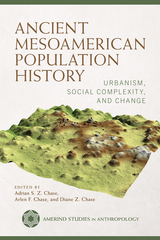

This volume seeks to study the connections between two well-studied epochs in Chinese history: the mid-imperial era of the Tang and Song (ca. 800-1270) and the late imperial era of the late Ming and Qing (1550-1900). Both eras are seen as periods of explosive change, particularly in economic activity, characterized by the emergence of new forms of social organization and a dramatic expansion in knowledge and culture. The task of establishing links between these two periods has been impeded by a lack of knowledge of the intervening Mongol Yuan dynasty (1271-1368). This historiographical "black hole" has artificially interrupted the narrative of Chinese history and bifurcated it into two distinct epochs.
This volume aims to restore continuity to that historical narrative by filling the gap between mid-imperial and late imperial China. The contributors argue that the Song-Yuan-Ming transition (early twelfth through the late fifteenth century) constitutes a distinct historical period of transition and not one of interruption and devolution. They trace this transition by investigating such subjects as contemporary impressions of the period, the role of the Mongols in intellectual life, the economy of Jiangnan, urban growth, neo-Confucianism and local society, commercial publishing, comic drama, and medical learning.

Tea growing was a prosperous industry in Sichuan when Wang Anshi's New Policies created a Tea Market Agency to buy up Sichuanese tea and trade it to Tibetan tribesmen for cavalry horses. At first the highly autonomous Agency not only acquired the needed horses but made a profit. After the Jurchen conquest of North China, however, market realities changed and the combined Tea and Horse Agency's once successful policies ruined tea farmers, failed to meet quotas for horses, and ran a deficit. Smith details the workings of Sichuan tea farming and the tea trade, examines the geopolitical factors that forced the Song to buy horses, and graphically describes the difficulties of driving them more than a thousand miles through rugged mountains with only inexperienced conscripts as trail hands.
In this study of fiscal sociology, Smith also explains how the Tea and Horse Agency transformed the Sichuan local elite, which was notorious for its resistance to state power, into imperial civil servants eager to tax their own region. He draws on modern theories of corporate behavior to explain what made the inner workings of the Agency an extraordinary departure for the Chinese civil service; and he demonstrates how the Agency put into practice the most radical New-Policies theories of state economic activism. The Agency made entrepreneurs out of bureaucrats, but ultimately became ruinously tyrannical as the system of state rewards and punishments drove its personnel to actions that crippled key sectors of the economy.
READERS
Browse our collection.
PUBLISHERS
See BiblioVault's publisher services.
STUDENT SERVICES
Files for college accessibility offices.
UChicago Accessibility Resources
home | accessibility | search | about | contact us
BiblioVault ® 2001 - 2024
The University of Chicago Press









